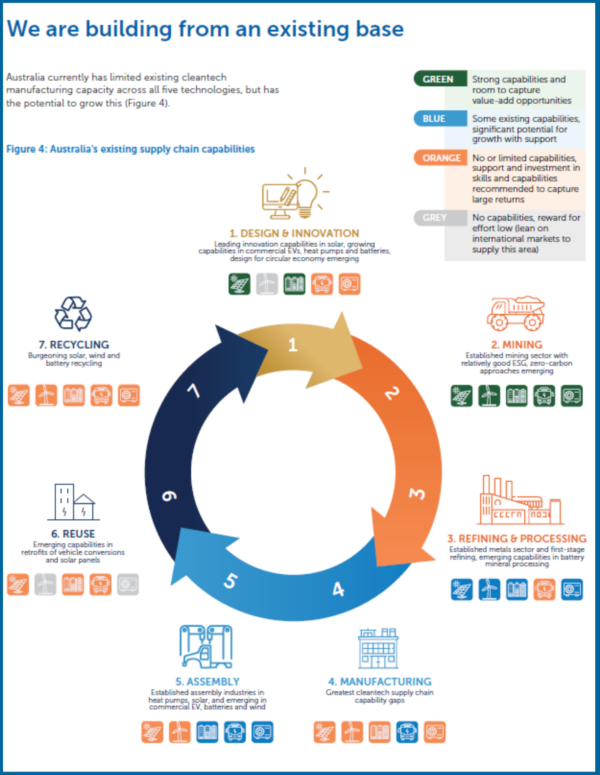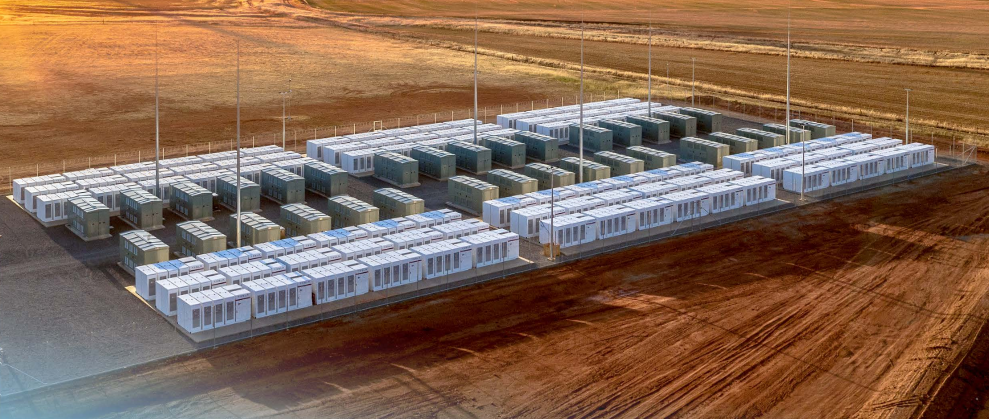Beyond Zero Emissions (BZE) has called for smart investment now to develop clean-tech supply chains in solar, battery technology, commercial electric vehicles (EVs), wind and heat pump manufacturing and supply chains, in line with the federal government’s Future Made in Australia initiative.
The federal government recently proposed a taxpayer-funded incentive scheme for advanced manufacturing and clean energy projects to stake the nation’s place in the global clean energy race.
BZE Chief Executive Officer Heidi Lee said Australia already has the skills and key technologies required to create a zero emissions economy, we just need to use them.
“We don’t need to do everything, everywhere and all at once,” she said. “We need to double down on doing more of what we know, and support the communities, industries and businesses already set up and ready to make Australia’s future.”
“We need to build capability at the top and tail of cleantech supply chains, so we are better equipped to capture the benefits from our consumer products right through to waste that we currently have to bury or ship overseas.”

Image: Beyond Zero Emissions
The Make it here: building Australia’s clean industrial future report identifies battery technologies as the most promising sector for Australia’s economic growth and decarbonisation efforts, saying it has the potential to create up to 20,000 jobs and $114 billion (USD 74.98 billion) revenue by 2035 – more than half of the projected revenue boost.
It said capitalising on the wealth of transition minerals by establishing battery chemistry industries and building up to five gigafactories to supply domestic energy storage systems and manufacturing commercial EVs, will be key.
The report also calls for Australia to establish a 5 GW solar industry, creating 6,000 new manufacturing jobs in regional Australian communities transitioning from fossil fuels such as Kwinana in Western Australia and the New South Wales Hunter Valley.
Zero-emission supply chains with high environmental, social and governance (ESG) standards are also identified by the report as a competitive advantage for Australia in global markets over the coming decade.

BZE says global cleantech demand will require 10,400 GW of solar and 7,600 GWh of battery energy storage capacity by 2035. The demand for battery energy storage for transport will be equivalent to nearly 1 billion cars, or 70,600 GWh.
To secure Australia’s future in the global clean energy supply chain, the report lists a series of recommendations, including providing “time-limited” financial support to build competitive domestic cleantech manufacturing industries.
It also calls for a focus on clean-tech manufacturing in clean industry hubs, establishing policies to ensure demand for Australian-made renewable technologies, and the development of a circular economy.
“Smart investment in supply chains is critical for Australia’s energy security, long-term jobs market and decarbonisation efforts,” Lee said. “With the right support, Australia can meet global markets’ demand for refined critical minerals, and support onshore demand for cleantech products.”
The release of the report came on the same day that Australian Prime Minister Anthony Albanese announced the government will invest $566.1 million over the next decade to identify new deposits of minerals and sources of energy.
Led by Geoscience Australia, the investment will aid discovery of deposits of the critical minerals and rare earths needed to build the clean energy technologies required to get to net zero.
Albanese said the investment highlights the government’s commitment to building a secure and sustainable future for all Australians.
“There is no nation on earth better placed than Australia to achieve our goal of moving toward a clean energy future,” he said.
Minister for Resources Madeleine King said the road to net zero runs through Australia’s resources sector.
“This funding will ensure we can draw the map for our resources companies to find the minerals we need to drive our economy and build the technology we need to reduce emissions,” she said.
This content is protected by copyright and may not be reused. If you want to cooperate with us and would like to reuse some of our content, please contact: editors@pv-magazine.com.








2 comments
By submitting this form you agree to pv magazine using your data for the purposes of publishing your comment.
Your personal data will only be disclosed or otherwise transmitted to third parties for the purposes of spam filtering or if this is necessary for technical maintenance of the website. Any other transfer to third parties will not take place unless this is justified on the basis of applicable data protection regulations or if pv magazine is legally obliged to do so.
You may revoke this consent at any time with effect for the future, in which case your personal data will be deleted immediately. Otherwise, your data will be deleted if pv magazine has processed your request or the purpose of data storage is fulfilled.
Further information on data privacy can be found in our Data Protection Policy.